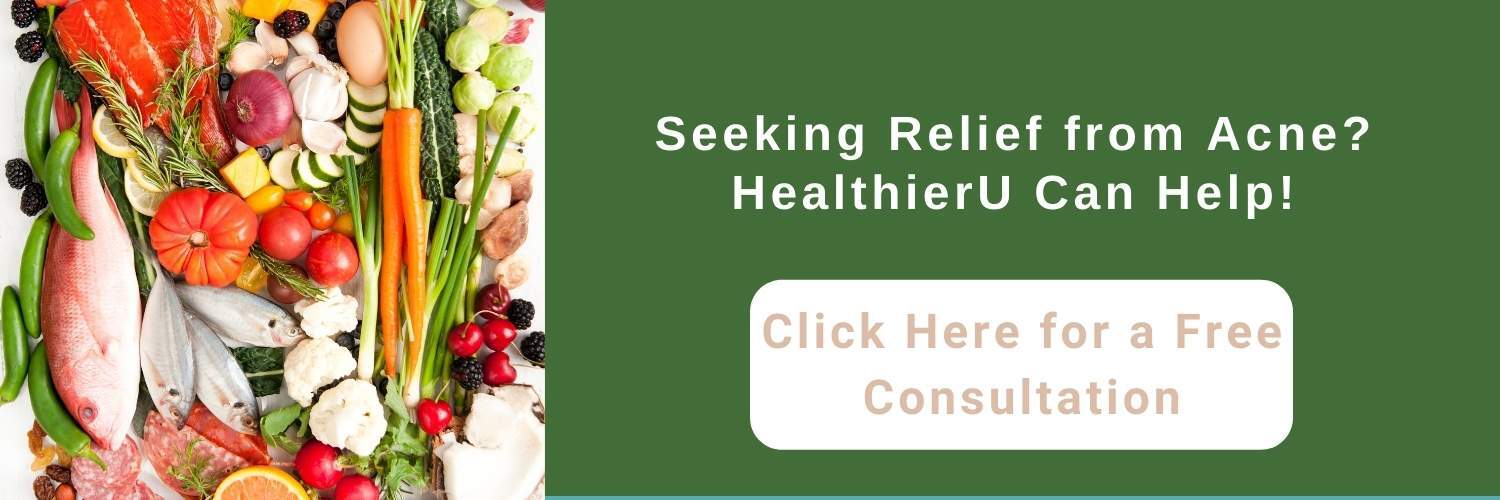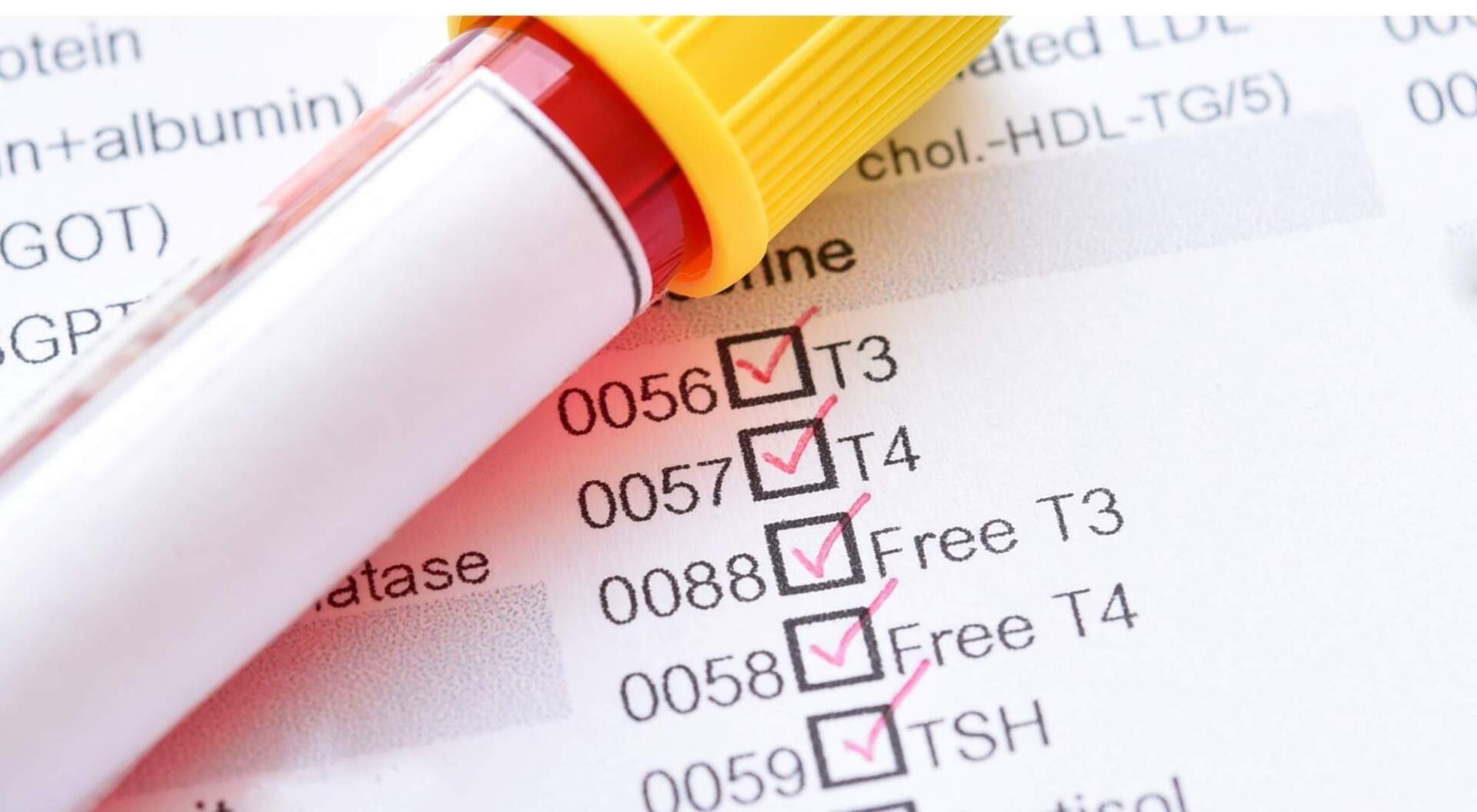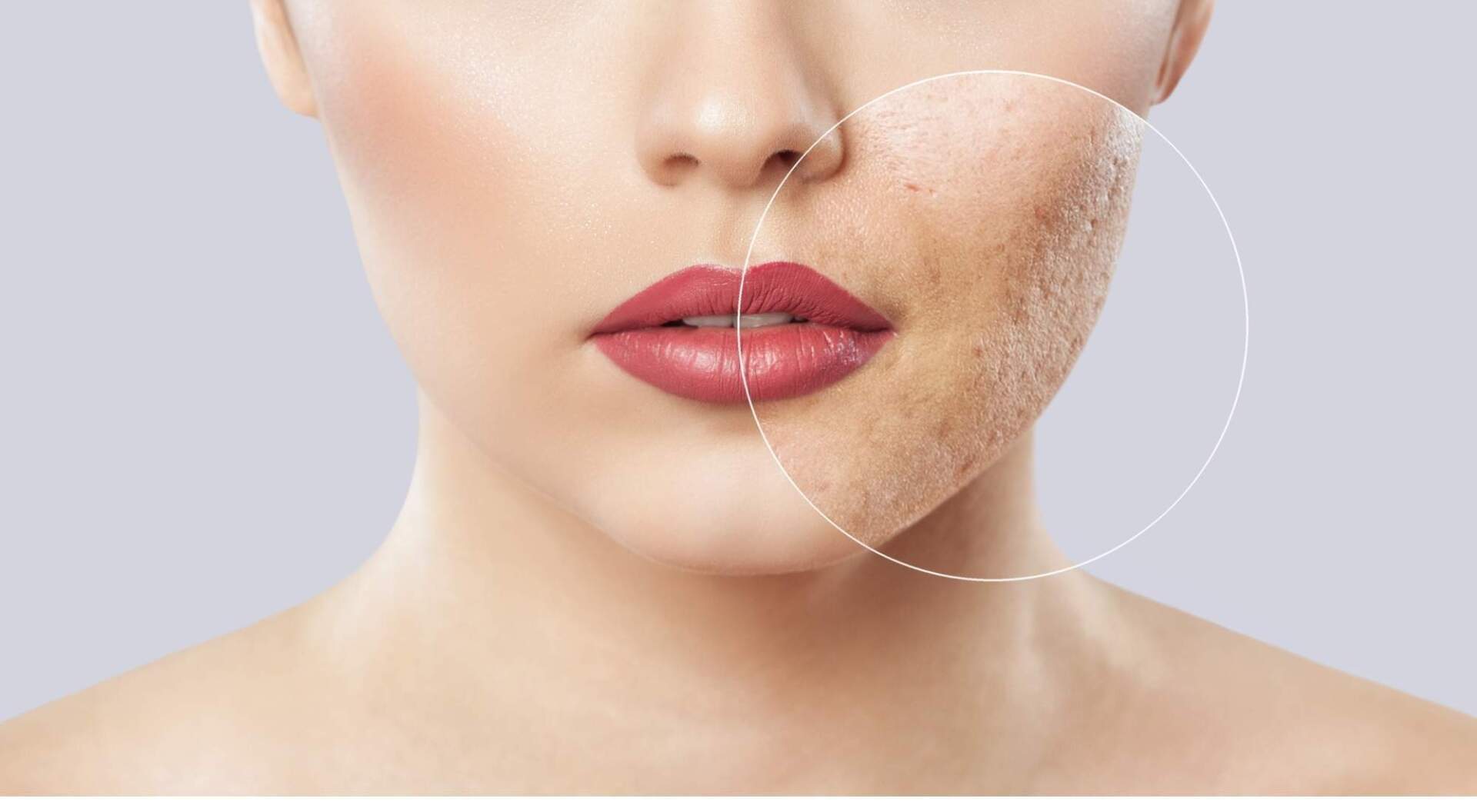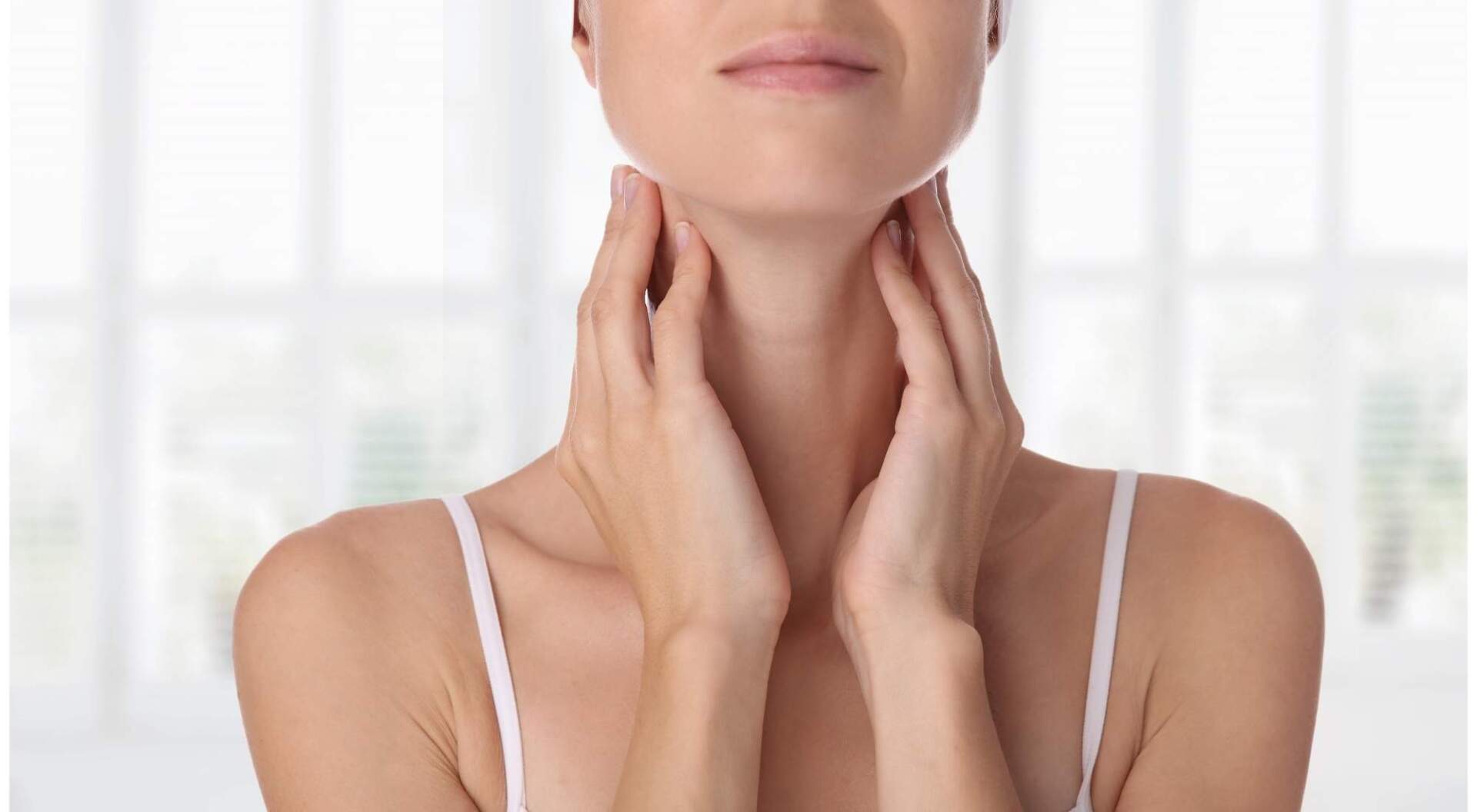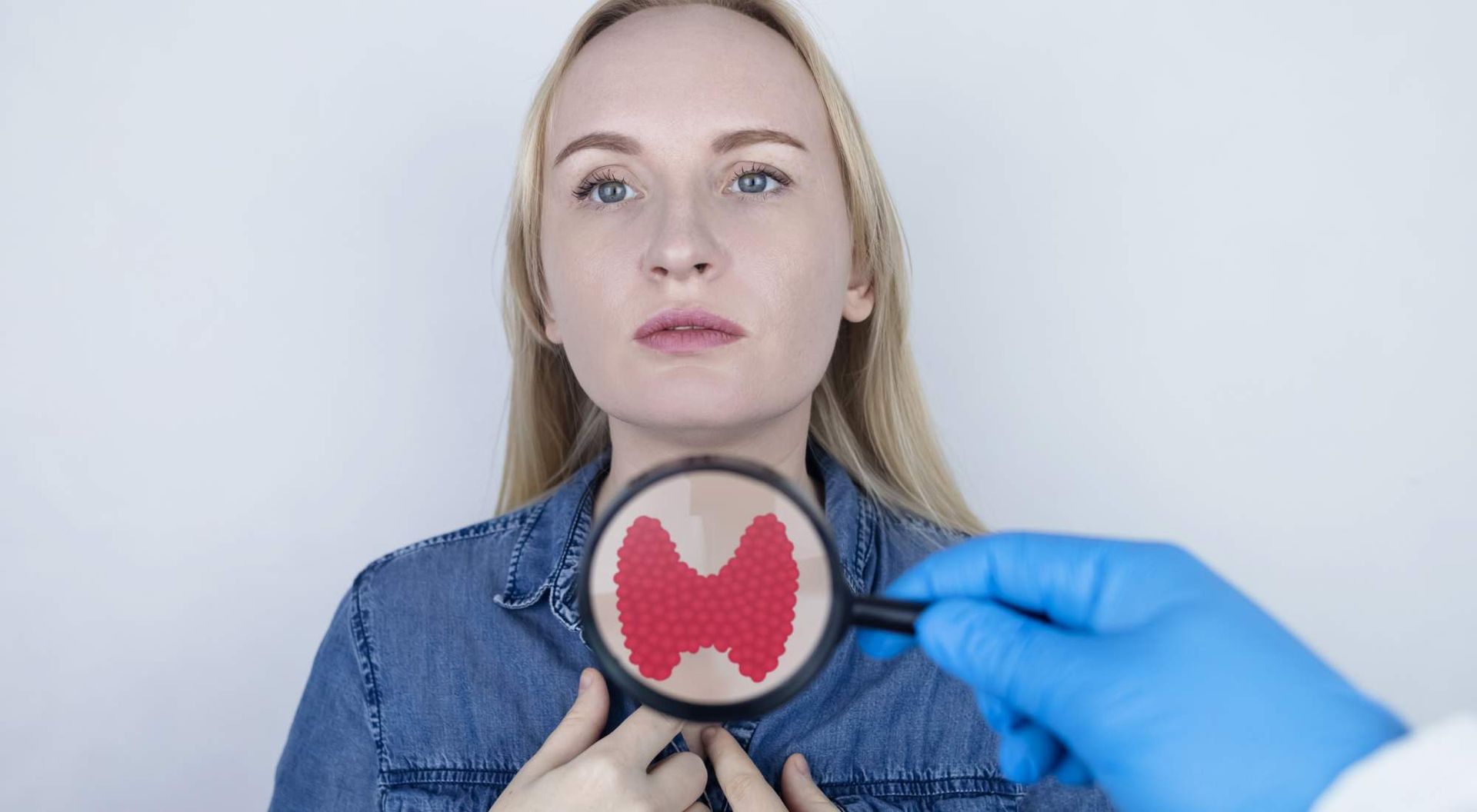Can Hypothyroidism Cause Acne? A Close-Up Look at How an Underactive Thyroid May Cause Acne
"The content below is not intended to be a substitute for professional medical advice, diagnosis, or treatment. Always seek the advice of your physician or other qualified health provider with any questions you may have regarding a medical condition."
You’ve started to notice some annoying acne. Puberty was more than a few years ago, and you’re pretty sure you’re not pregnant –– so what’s the deal?
What’s causing these pesky pimples?
Have you had your thyroid checked recently? Can thyroid issues cause acne?
It’s worth looking into. Acne can be difficult to treat unless you know what’s causing it.
Read on to learn about:
- Hypothyroidism
- Why hypothyroidism may be causing acne; and
- How Nutrition Response Testing at HealthierU may help you overcome hypothyroidism and clear up your acne
Table of Contents
What Is Hypothyroidism?
Hypothyroidism is an underactive thyroid, which means your body isn’t producing enough thyroid-stimulating hormone, or TSH.
When your thyroid gland is under-producing, your body processes slow down.
This may cause you to experience the following:
- Fatigue
- Weakness
- Weight gain
- Dry hair and skin
- Hair loss
- Muscle cramps and aches
- Irritability
- Depression
- Difficulty tolerating cold temperatures
Thyroid disorders are relatively common. Approximately 10 million Americans or 5-10% of the population are thought to have hypothyroidism, which is seen more often in women.
It’s important to note, many thyroid issues go undiagnosed.
Can Hypothyroidism Cause Skin Problems?
Absolutely. Hypothyroidism can impact the skin, hair, and nails.
When it comes to the skin, here are a few signs of a thyroid disorder:
- Dry, pale and, cool skin
- Dry skin with deep cracks and scales
- Deep, noticeable lines on the palms and soles of the feet
- Yellowish-orange color on the palms and soles of the feet
- Swollen face
- Slow-healing wounds
- Flushing (redness) in the face
Do any of these symptoms sound familiar?
What Causes Acne to Develop?
If you’re reading this article, you’re likely familiar with acne.
Whether you’re dealing with:
- Whiteheads
- Blackheads; or
- Pimples
Acne occurs when your hair follicles are clogged with oil and dead skin cells.
The leading causes of acne include:
Increased characterization of follicular cells- Increase or change in the composition of sebum (oily in your skin) production
- Inflammation of cell tissues
- Increase in the growth of Cutibacterium Acne
Acne is most common in teenagers. Acne after puberty may be your body’s way of telling you that something inside isn’t quite right.
Can Hypothyroidism Cause Acne?
If you’ve found yourself here, you’re likely wondering, do thyroid issues cause acne? More specifically, does hypothyroidism cause acne?
Yes,
studies do show a link between hypothyroidism and acne. Low levels of thyroid hormones cause several skin issues, and these skin issues have direct correlations to acne.
2 Forms of Acne That May Be Caused by Hypothyroidism
How does hypothyroidism affect the face?
Your face may be a tell-tale sign of an under-producing thyroid. You may notice:
- Hormonal acne
- Cystic acne; or
- Both
However, this acne may impact more than just your face. While it’s most noticeable on the face, breakouts can develop elsewhere on the body, including on the:
- Neck
- Chest
- Shoulders
- Upper arms
- Back; and
- Butt
Body acne is caused by the same factors that contribute to facial acne.
#1: Hormonal Acne
Hormonal acne occurs when hormones (estrogen, progesterone, testosterone, etc.) fluctuate outside their normal levels.
These hormone fluctuations can often be blamed on one or more of the following:
- Thyroid disease (Hypothyroid, Hyperthyroid)
- Menstruation
- Menopause
- Pregnancy
- Polycystic ovary syndrome (PCOS)
- Beginning or weaning off of oral contraceptive
The chin and jawline are popular spots for hormonal acne to pop up.
If you’re struggling with hormonal acne, you’ve likely already tried creams and chemicals. Have you tried addressing the problem with a change in your diet?
Certain foods may be linked to acne development and worsen hormonal acne symptoms in adults.
That’s why addressing acne from a nutritional standpoint can help get to the bottom of things.
You may find eliminating or decreasing intake of …
- Dairy products
- Caffeine
- Alcohol; and
- Foods and beverages with a high sugar content
… may help control hormonal breakouts.
If you’re unsure if a hormonal imbalance causes your acne troubles due to hypothyroidism, Nutrition Response Testing at HealthierU is an excellent opportunity to figure out what’s going on with your body. Nutrition Response Testing will help you get to the root cause of your breakouts.
Answers and clearer skin may be easier to get than you anticipated.
#2: Cystic Acne
You may remember cystic acne from your teenage years. Sure enough, it’s most common in teens, however, cystic acne can develop in adults as well.
Cystic acne develops when cysts form deep under the skin. It happens when bacteria, oil, and dry skin cells get trapped in your pores.
Symptoms of cystic acne include:
- Large cysts, filled with pus
- Redness
- Bumps or boils that are tender or painful to touch
Cystic is the most severe type of acne. Additionally, cystic acne is the most likely to scar. For that reason, tempting as it may be, it's best not to pop or pick at the cysts.
How Does Hypothyroidism Cause Acne? 6 Ways Hypothyroidism May Cause Acne
Still wondering how can thyroid imbalance can cause acne?
Let’s break it down into 6 ways hypothyroidism may be to blame for your skin troubles:
- Disruption of hormones
- Decreased blood flow to tissues
- Low Vitamin A
- Gastrointestinal issues
- Chronic inflammation
- Dry skin
#1: Disruption of Hormones
Hormones affect your mental, physical, and emotional health. Ideally, the endocrine glands produce the correct amount of each hormone necessary for the body to run properly.
But, an underproducing thyroid can be responsible for disrupting your hormonal balance.
Unbalanced hormones are the key component of hormonal acne.
#2: Decreased Blood Flow to Tissues
Hypothyroidism causes decreased blood flow to tissues. Reduced blood flow means low levels of oxygen.
Here’s the thing –– when harmless bacteria on the face is surrounded by oil and no oxygen, that harmless bacteria can become inflamed, resulting in a zit.
Bottom line: acne thrives in states of low oxygen.
#3: Low Vitamin A
People with thyroid conditions may benefit from supplementing their intake of vitamins and minerals.
In particular, a deficiency in vitamin A can lead to skin problems, including
acne.
#4: Gastrointestinal Issues
People with hypothyroidism often also experience digestive or gastrointestinal issues.
These can include:
- Low stomach acid
- Poor absorption
- Anemia
- Gallstones; and
- Bacterial overgrowth in the small intestine
Gut health is essential to the entire body running properly. GI issues often cause symptoms you commonly think of when thinking of the digestive system, such as:
- Gas
- Bloating
- Diarrhea
However, when the gastrointestinal system is out of sorts, you may also experience non-digestive related symptoms, like:
- Fatigue
- Nutrient deficiencies
- Eczema; and
- Acne
#5: Chronic Inflammation
Hypothyroidism can lead to chronic inflammation, this is especially true when the thyroid is underproducing due to Hashimoto’s disease.
Inflammation is when your body’s white blood cells enter your blood or tissues to protect your body from invasion. However, with chronic inflammation, the body may go into “attack-mode” even when it doesn’t need to. To put it simply, chronic inflammation is when your immune system is over-responding.
Chronic inflammation causes inflammatory acne. The body is sending an immune response to something so simple as a clogged pore, resulting in redness and swelling.
Diet can play an important role in managing chronic inflammation. The team at
HealthierU are experts in creating nutrition plans tailored specifically to each patient’s needs.
#6: Dry Skin
When you think of acne, you probably think of oily skin as a factor. However, dry skin can cause acne as well.
Still scratching your head over this?
Here’s a simple explanation.
The thyroid plays an important role in regulating skin cells. Low levels of thyroid hormone can contribute to dry, flaky skin.
When your skin is very dry, the body tries to compensate, counteracting the dryness by creating excess sebum. When those dry, flaky, dead skin cells get stuck in the pores with the sebum, clogging them causing inflammation and acne.
Acne caused by dry skin can be difficult to treat. That’s because most topical treatments designed for acne (creams, cleansers, astringents, etc.) dry you out even more, exacerbating the problem. This is another reason why treating acne naturally and holistically from the inside out provides better results.
See How Nutrition Response Testing at HealthierU May Help You Overcome Hypothyroidism and Acne
If you’re struggling with acne, topical treatments are just a temporary fix. That’s because acne is a symptom of a greater issue. It’s time to get to the bottom of what’s causing the acne.
If you’re looking to manage acne naturally and holistically, without the use of acne creams and topical treatments, Nutrition Response Testing and personalized guidance on nutrition is a fantastic place to start.
Nutrition Response Testing is a form of nutritional therapy that is used to discover the root cause of health-related symptoms, including acne so that your holistic health nutritionist can create a plan to alleviate them.
By analyzing the body’s state of health using Nutrition Response Testing, a holistic nutritionist can create a health plan that is designed to help your body repair itself through proper nutrition.
Nutrition Response Testing is a highly scientific and clinically proven method of determining the underlying cause of many health conditions, including:
- Hormonal imbalances
- Digestive Issues
- Thyroid problems
- Candida
- Weight problems
- And more
Dr. Donna Sergi of HealthierU in Brooklyn, NY, has decades of experience in holistic medicine and a passion for helping people resolve their health issues in a safe, non-toxic, and natural way. She’ll develop a plan based specifically on your body’s needs that will help balance hormones and get stubborn hormonal breakouts under control.
Schedule your complimentary consultation today. It’s the first step to clearing your skin and feeling better from the inside out.

